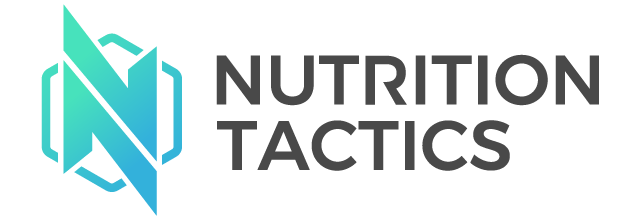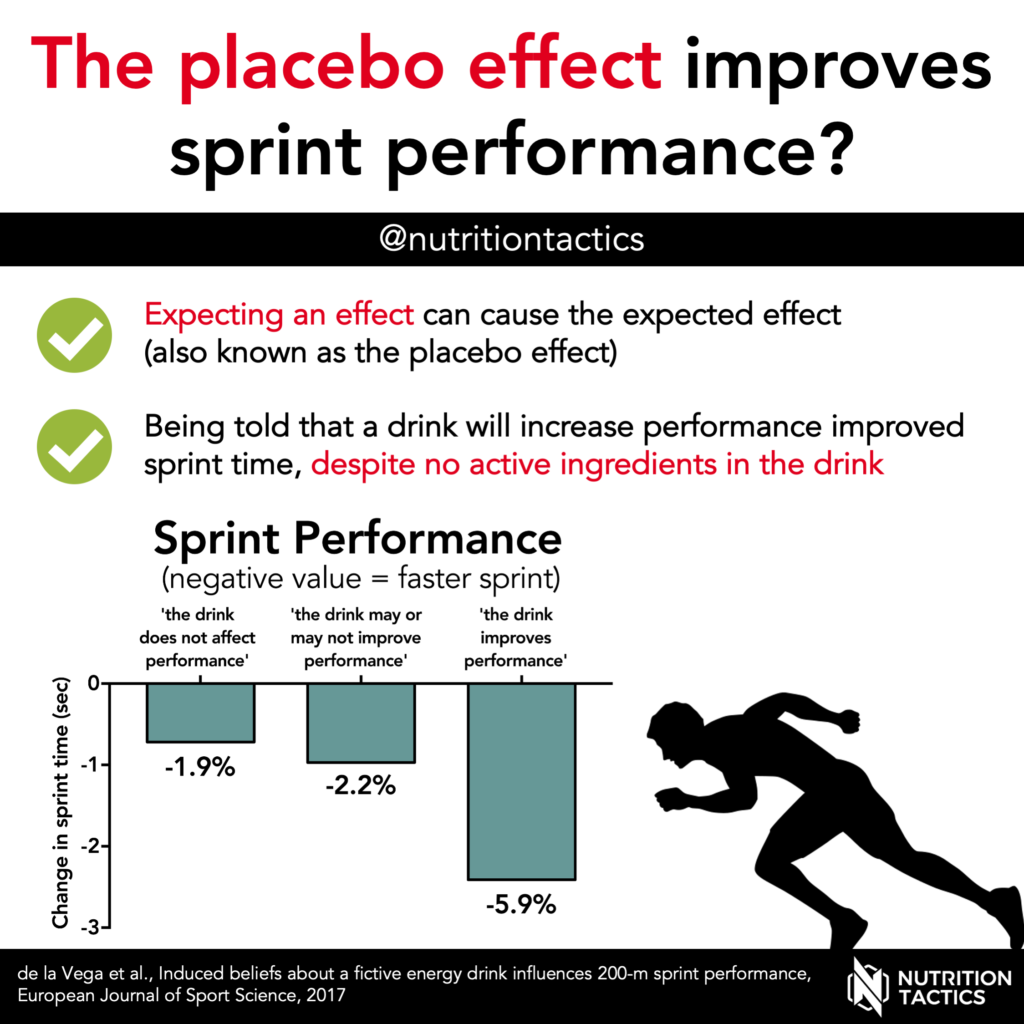Can you sprint faster by simply expecting it?
The placebo effect is the phenomenon that expecting a physiological effect can cause the expected effect. For example, when patients in pain are told they get pain killers, their pain decreases even when the pills are fake.
The placebo effect is interesting for athletes and coaches, because performance can be improved by simply expecting better performance (because of a certain training program, ritual, diet, product, supplement etc.).
This study investigated the effect of providing different information about an energy drink on performance. Subjects performed a sprint at baseline and a week later after receiving the energy drink.
The energy drink was simply water with green coloring (so no active ingredients), but the researchers told the subjects one of the following:
- ‘the drink improves performance’ (positive group)
- ‘the drink may or may not improve performance’ (partial positive group)
- ‘the drink does not affect performance’ (neutral group)
The neutral information and the partial positive information groups did not significantly improve 200-m performance after the drink. However, the positive information group did improve 200-m performance by ~6%.
It should be noted that it is very important that the athlete/subject is convinced. If someone is skeptical, the effect (if present at all) is likely much less. It’s also important to note that these participants were not highly trained. It’s not clear how large the effect would be in more trained athletes.
The placebo effect may have some practical implications. For example, if you make a new suggestion to your athlete, you may want to be very positive about its effectiveness.
Study:
De la Vega et al. Induced beliefs about a fictive energy drink influences 200-m sprint performance. Eur J Sports Sci, 2017
Go to the next infographic in the placebo series:
Anabolic steroid placebo increases strength gains?


Leave a Reply